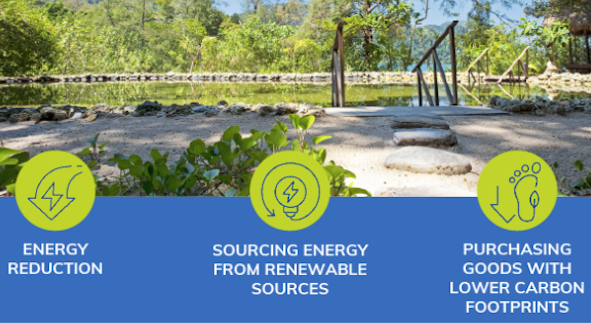Marriott International sets ambitious climate goals, verified by science
Marriott International, the world’s largest hotel chain, has received approval from the Science Based Targets initiative (SBTi) for its comprehensive plan to reduce greenhouse gas emissions. The company’s targets, both in the near and long term, align with the latest climate science and aim to significantly lessen Marriott’s environmental impact.
SBTi is a collaboration between the CDP, the United Nations Global Compact, World Resources Institute (WRI) and the World Wide Fund for Nature (WWF), with a global team composed of people from these organizations. Since 2015, more than 1,000 companies have joined the initiative to set a science-based climate target.
In the short term, Marriott has committed to a 46.2% reduction in direct greenhouse gas emissions from its operations by 2030, compared to 2019 levels. It also aims to cut emissions from its broader value chain, including suppliers and franchises, by 27.5% over the same period.
Looking further ahead, the company has set an ambitious goal to achieve net-zero emissions across its entire value chain by 2050. This means eliminating or offsetting virtually all greenhouse gas emissions associated with its operations, from the energy used in its hotels to the goods it purchases and the travel of its employees.
“The impact of climate change is being seen and felt across the globe,” said Anthony Capuano, Marriott’s President and CEO. “As we continue to connect people through the power of travel, we are committed to driving meaningful improvements to the environment.”
Marriott’s sustainability efforts are multifaceted, focusing on energy reduction, increased use of renewable energy, and sourcing goods with lower carbon footprints. The company has already launched several initiatives, including the Climate Action Program to educate employees about climate change and the Energy Optimization Program to help hotels become more energy efficient.
Marriott’s commitment to sustainability is part of its Serve 360 platform, which guides the company’s efforts to make a positive social and environmental impact. More details about Serve 360 can be found at Marriott.com/Serve360.
The company’s recent sustainability highlights include:
Launching the Climate Action Program (CAP), the company’s approach to charting a growth-focused future through building climate fluency, addressing climate risk, and reducing greenhouse gas emissions across the organization.
Delivering property-specific carbon and energy reduction targets to every managed and franchised hotel globally.
Enhancing the Marriott Environment Sustainability Hub (MESH), a global platform for properties to log monthly power, water, and waste metrics. With these enhancements, properties can now easily access customized, property-specific information for reducing energy and carbon.
Introducing the Energy Optimization Program to help properties manage rising energy costs. The program assists properties in conducting an energy audit to identify ways to become more energy efficient.
Engaging with suppliers as they work to understand and reduce their emissions.
Sharing sustainability information, including individual hotel carbon footprint data, on Marriott.com.
Erika Alexander, Marriott’s Chief Global Operations Officer, emphasized the company’s dedication to sustainability: “We believe it’s good business and good for the planet.”
The SBTi’s verification of Marriott’s targets marks a significant milestone in the hospitality industry’s efforts to combat climate change. As the largest global hotel company to receive this approval, Marriott is setting a precedent for others to follow.
Any thoughts, opinions, or news? Please share them with me at vince@meetingsevents.com.





